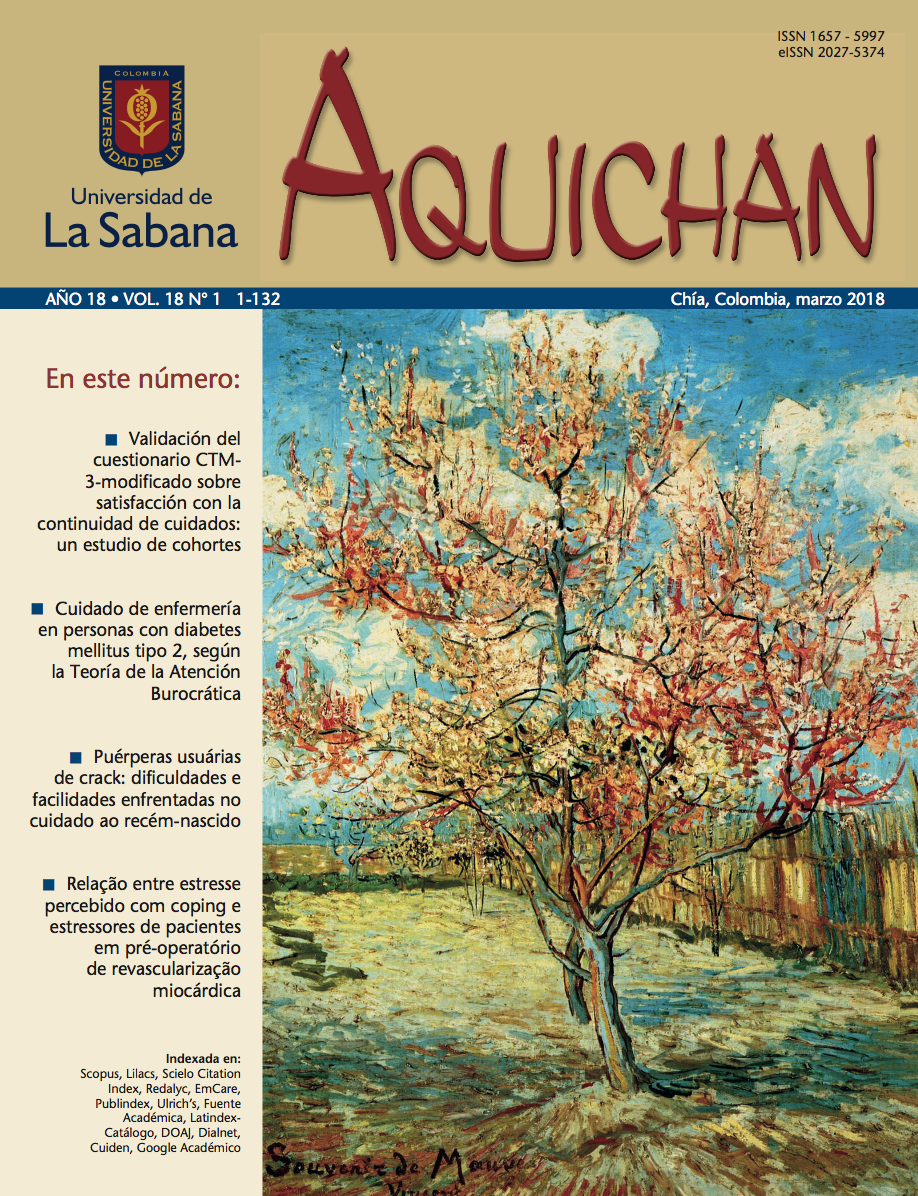Crack-Dependent Postpartum Women: Newborn Care Difficulties and Facilities
Keywords:
Postpartum period, disorders related to substance abuse, crack cocaine, newborn, nursingAbstract
Introduction: Newborns of crack-dependent mothers suffer the effects of drug dependence in the first hours of life and can exhibit irritability, sweating, hypertonia and difficulty in their sleep and wake cycles. This reality means the crack-dependent mother requires professional help to be able to care for her newborn child. Objective: The purpose of the study is to identify the newborn care difficulties and facilities facing postpartum women who are dependent on crack. Method: A qualitative study was conducted at a maternity hospital in southern Brazil, through semi-structured interviews with 18 postpartum women. Results: The content analysis made it possible to identify a number of difficulties; namely, abstinence from crack cocaine, no breastfeeding, lack of family support, surveillance by professionals from the Guardianship Council, lack of ability to care for the newborn, fear of hurting the newborn and financial problems. As for facilities, it was found the newborns of crack-dependent mothers cry little and are quiet and tranquil. Support from family members, neighbors and friends and financial help from the partner and the family are possible resources as well. Conclusion: Crack-dependent postpartum women need help to fulfill their role as newborn caregivers. They should be identified during pregnancy so as to receive guidance during the prenatal period and orientation on newborn care and the support services to which they are entitled.Downloads
Download data is not yet available.
Downloads
Published
2018-02-12
How to Cite
Xavier, D. M., Gomes, G. C., Ribeiro, J. P., Mota, M. S., Alvarez, S. Q., & da Silva, M. R. S. (2018). Crack-Dependent Postpartum Women: Newborn Care Difficulties and Facilities. Aquichan, 18(1). Retrieved from https://aquichan.unisabana.edu.co/index.php/aquichan/article/view/6918
Issue
Section
Articles
License
1. Proposed Policy for Journals That Offer Open Access
Authors who publish with this journal agree to the following terms:
- The journal and its papers are published with the Creative Commons License Attribution-NonCommercial-NoDerivatives 4.0 International (CC BY-NC-ND 4.0). You are free to share copy and redistribute the material in any medium or format if you: give appropriate credit, provide a link to the license, and indicate if changes were made; don’t use our material for commercial purposes; don’t remix, transform, or build upon the material.





